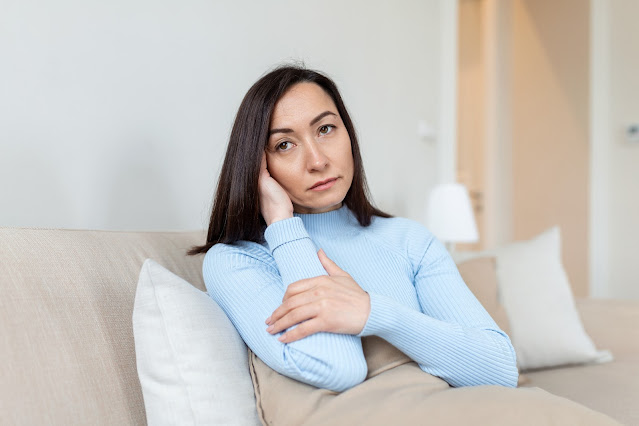As we journey through life, our bodies go through various stages of transformation. One such phase that both men and women experience is commonly known as “the change.” This term often refers to menopause in women, but it can also encompass shifts in hormonal balance in men. While these changes are a natural part of aging, sometimes they can occur earlier than expected. Early onset of ‘the change’ can bring about a range of physical and emotional challenges. In this article, we’ll explore six alarming signs that might indicate you’re going through ‘the change’ early, what could be causing it, and what steps you can take.
1. Irregular Menstrual Cycles:
For women, irregular periods can be a telltale sign that ‘the change’ is happening earlier than anticipated. Menstrual cycles might become shorter or longer, or you may experience heavier or lighter flows. While irregular periods can sometimes be caused by other factors, such as stress or health conditions, if you notice a consistent pattern of irregularity, it’s worth discussing with a healthcare professional.
2. Hot Flashes and Night Sweats:
Hot flashes and night sweats are often associated with menopause. However, experiencing these symptoms in your 30s or 40s could indicate early hormonal shifts. These sudden feelings of warmth and intense sweating can be uncomfortable and disruptive to daily life. Consulting a doctor can help identify the underlying cause and explore potential treatment options.
3. Mood Swings and Emotional Changes:
Hormonal fluctuations can significantly impact mood and emotions. Irritability, anxiety, and even depression might surface as a result of early hormonal changes. If you notice abrupt shifts in your emotional well-being without an apparent trigger, it’s essential to address these changes with a healthcare provider.
4. Changes in Libido:
A decreased interest in sex can be a sign of early hormonal shifts. Both men and women might experience changes in libido due to altered hormone levels. Open communication with a partner and seeking medical advice can help manage this aspect of early ‘change.’
5. Hair and Skin Changes:
Early hormonal changes can also manifest in physical ways. Thinning hair, dry skin, and increased facial hair are possible indicators. These changes might impact self-esteem and body image, making it important to consult a healthcare professional who can recommend appropriate treatments.
6. Fatigue and Sleep Disturbances:
Feeling persistently tired despite adequate sleep could be linked to hormonal fluctuations. Hormones play a role in regulating sleep patterns, and early ‘change’ can disrupt this balance. If you’re experiencing unexplained fatigue and sleep disturbances, it’s worth investigating further.
Causes of Early ‘Change’:
Various factors can contribute to early onset hormonal changes. Genetics, lifestyle, stress, underlying health conditions, and certain medical treatments can all play a role. Consulting a healthcare provider can help identify the specific cause in your case.
Seeking Medical Advice:
If you suspect you’re going through ‘the change’ earlier than expected, it’s crucial to consult a healthcare professional. A doctor can conduct a thorough evaluation, including hormone level tests, to determine if early hormonal changes are indeed occurring. Based on the findings, they can provide guidance on managing symptoms and improving overall well-being.
Conclusion:
Experiencing ‘the change’ early can be challenging, both physically and emotionally. Recognizing the signs and seeking medical advice promptly is essential for understanding the underlying cause and managing symptoms effectively. While early hormonal shifts might pose certain challenges, advancements in medical science have provided various treatment options that can help individuals navigate this phase of life with greater ease and comfort. Remember that you’re not alone in this journey, and seeking support from healthcare professionals, friends, and family can make a significant difference in coping with early ‘change.’


